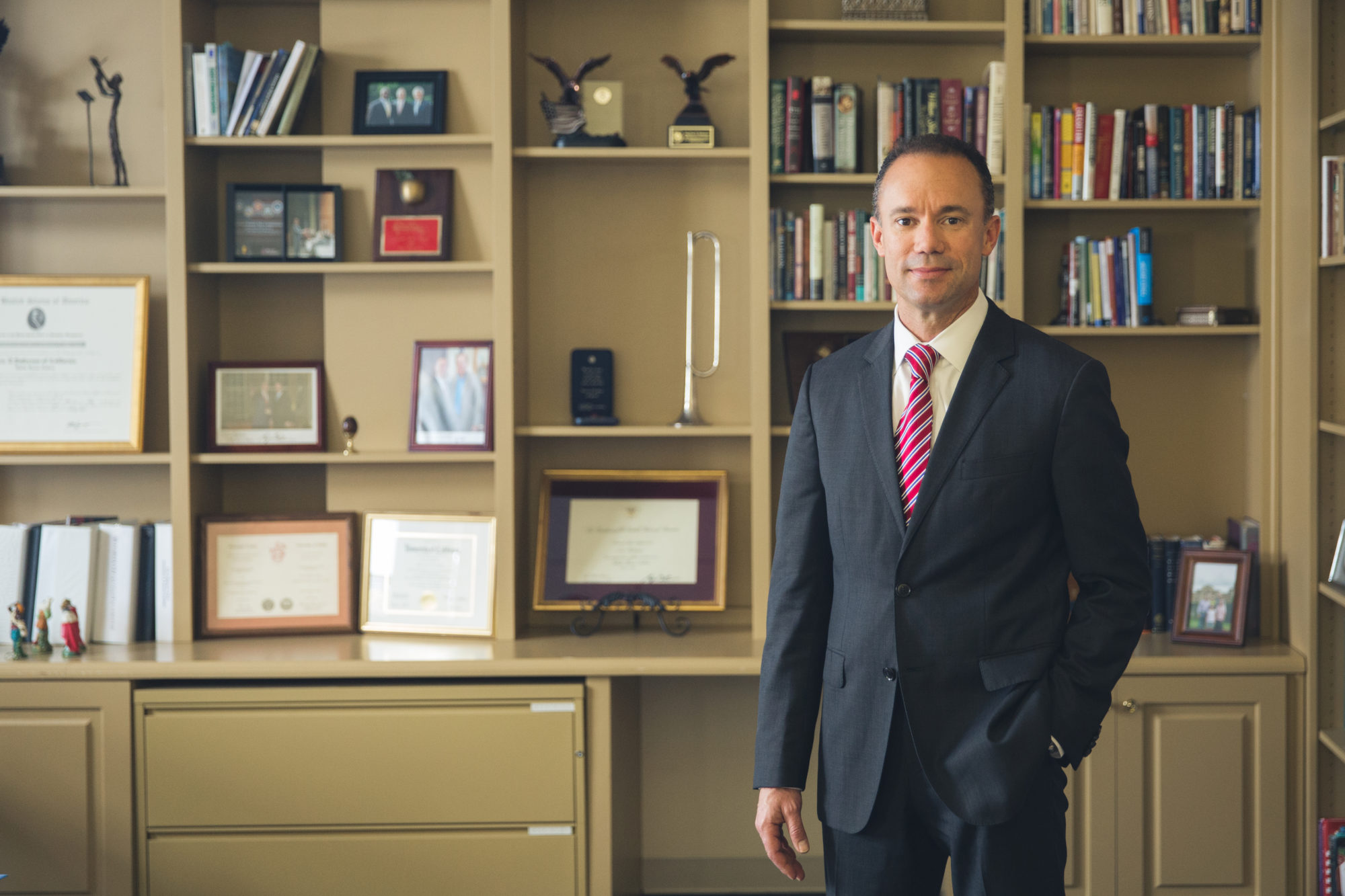Veterans Day is when Americans commemorate the sacrifice and service of living military veterans. Whether age 25 or 90, regardless of sex, religious tradition, or service branch, Americans should slow our frenetic race to the holiday season and honor our nation’s veterans.
How should we think about veterans and military service more generally? C.S. Lewis, a World War I veteran who was wounded in combat, provides some answers.
First and foremost, Veterans Day affirms that to have peace in a fallen world we must have guardians and protectors. Lewis was under no illusions about the modern world ever becoming so enlightened and cordial that the heroic warrior becomes superfluous. In his writing for children, he was adamant about presenting “brave knights and heroic courage” so that “side by side with the terrible figures, we find the immemorial comforters and protectors, the radiant ones.” He knew that children were sure to encounter evil people and believed that they must have confidence, when such encounters come, that evil is not the only force in the world.
The soldier, then, is a force and a symbol in a world of inevitable injustice. In times of relative peace, society may easily forget the indispensable warriors; in times of war and turmoil, their necessity is more pronounced, for “the wars and the weather… and the atomic bomb… remind[s] us forcibly of the sort of world we are living in and which, during the prosperous period before 1914, we were beginning to forget.” This is a world in which human liberty and free government hang in the balance, and we need men and women who understand and defend, as Lewis puts it, “the things which make life desirable.”
Second, Veterans Day allows us to reflect on the type of warrior ethos we want to cultivate in our military personnel. Just as chivalry developed in Christendom as a limit on warriors to dampen the excesses of battle, so too we want to nurture values of honor, duty, restraint, and love of country. In a democracy, we as citizens shape the societal expectations of our military, both by how we treat veterans and their families and by the conditions within which we support and train military personnel.
Though he does not idealize the soldier, Lewis does have expectations. One might infer from Lewis’s narratives on knighthood, in both his fiction and academic essays, that he regards knighthood and soldiership as something embodied in action, not in title or rank. In an essay on words, Lewis observed that the word gentleman was robbed of meaning as soon as it had to be qualified with such statements as real or true in order to be understood in conversation. With respect to knights and soldiers, when Lewis admires “the mutual love of warriors who die together fighting against odds” as the deepest of emotions in the world, he highlights that true knighthood or soldiership is embedded in moral courage, integrity, and the willingness to sacrifice.
Third, Veterans Day reminds us to listen to our veterans. Too often ignorant voices from within a peaceful society caw that warriors and veterans are necessarily war-mongers and a danger to our society. But if we listen to our veterans, they will usually be the first to remind us of the costs and horrors of war. They will argue for not only maintaining a vigilant strength, but also acting with limits and restraint.
In a letter to his father from a British Red Cross Hospital, Lewis observes, “I have discovered that optimism about the war increases in an inverse ratio to the optimist’s proximity to the line.” Lewis doesn’t deny that war is an evil; what he does deny is that war is the greatest evil, such that any state of affairs that avoids war at all costs is preferable to military engagement. Nobody wants war, least of all the soldier who must face the full horror of it. But war is nevertheless undertaken and soldiers are nevertheless sent because the alternative may be greater evil unhindered by any defenders.
Finally, Veterans Day reminds us of loss. We have Memorial Day to rightly honor our battle dead. On Veterans Day we honor our veterans’ loss of friends and comrades. We remember that, in addition to widows and orphans, our living veterans mourn. That grief can take many forms, and we must not forget or hide it away in survivor’s guilt. This is one of the reasons that monuments and ceremonies remain important for the living.
Lewis faced more than his fair share of loss of friends during his service. He enlisted for the Great War out of Keble College, a constituent of the University of Oxford, along with a small group of peers. At the end of the war, he reported to his father in a letter, “I remember five of us at Keble, and I am the only survivor: I think of Mr. Sutton, a widower with five sons, all of whom have gone. One cannot help wondering why. Let us be silent and thankful.”
Veterans Day is complex and sometimes paradoxical in its messages because such is the nature of armed conflict. For the soldier, these complexities and paradoxes direct the day-to-day work. Veterans Day gives us a chance to reflect on our own blessings and to thank military veterans for their example of selfless service and sacrifice in protecting the rights and ideals that make those blessings attainable.








 Sponsor a student for Christianity & National Security 2024
Sponsor a student for Christianity & National Security 2024